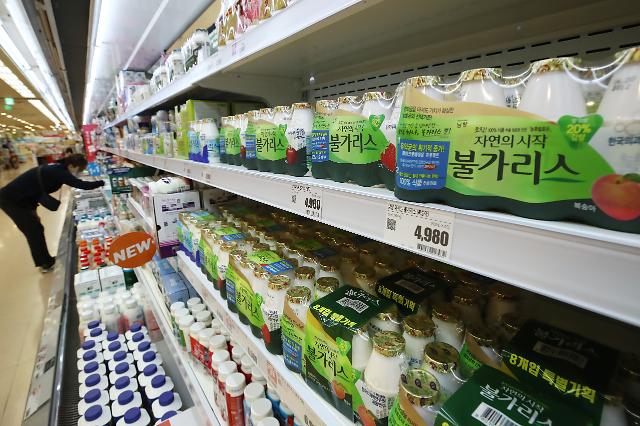
[Yonhap Photo]
Bulgaris has maintained its top position in the domestic fermented milk market since Namyang released it in 1991 by highlighting the story that it was developed based on lactobacillus fermented milk, which has been known as a health secret in Bulgaria, believed to be the birthplace of yogurt.
Namyang's initial marketing was very successful, creating a public perception in South Korea that Bulgaria is a country with many long-livers due to their eating habits. Bulgaris contains complex strains such as lactobacillus, acidophilus and bulgaricus, more than regular fermented milk products.
The effect of probiotic lactic acid bacteria (lactobacillus) strains on viral infection has been studied, and lactobacillus was found to provide many beneficial effects on human health. On top of that, some researchers in South Korea maintained in a seminar on April 14 that Bulgaris was found to be effective against influenza and COVID-19 viruses.
In the seminar hosted by the Korea Research Institute of Biomedical Science (KRIBS), Namyang's anti-virus immunization research head Park Jong-soo claimed that in laboratory experiments, Bulgaris had the effect of inhibiting 77.8 percent of the COVID-19 virus.
Park said that researchers have cultivated the virus in dog kidney cells and monkey lung cells to check whether lactobacillus had the effect of inhibiting virus activation. "Fermented milk generally has an anti-virus effect," he said, adding that Bulgaris showed a higher effect on virus reduction than other products.
"Even if it is the same fermented milk product, the antiviral function can vary depending on the manufacturing process and what lactobacillus is used," Park said, adding that detailed mechanisms should be identified through additional research. However, the study lacked the outcome of clinical trials.
A day later, Namyang's share prices soared in morning trading before falling sharply on verbal intervention by a state anti-epidemic control tower. The Korea Disease Control and Prevention Agency (KDCA), which leads South Korea's fight against COVID-19, sounded a note of caution, saying a study should be done to see if certain foods are effective in removing viruses from the human body.
When Namyang was once locked in a legal battle in 2005 with its domestic rival, Maeil Dairy Industry, over brand names, the producer of Bulgrais insisted that its name actually came from lactobacillus bulgaricus that can be used to produce yogurt from milk.
Copyright ⓒ Aju Press All rights reserved.




View more comments